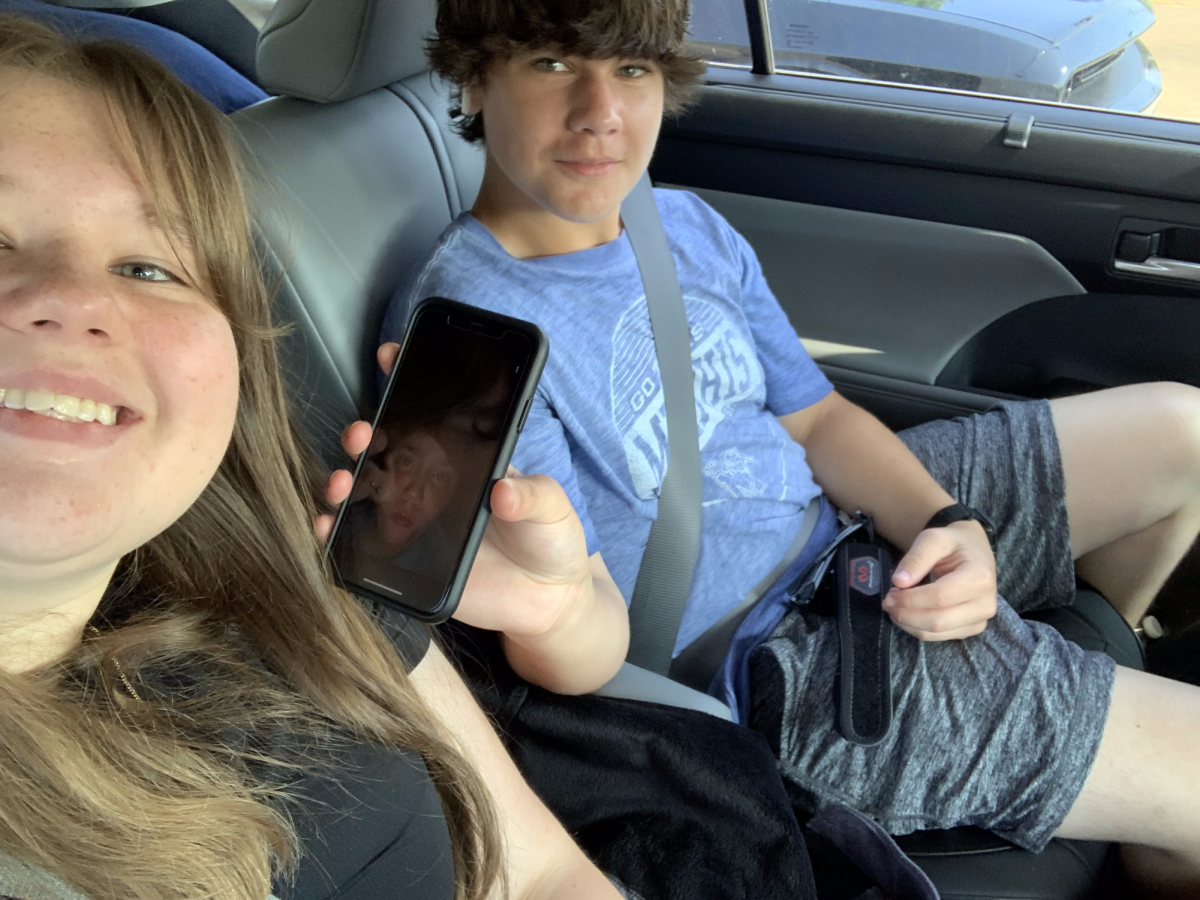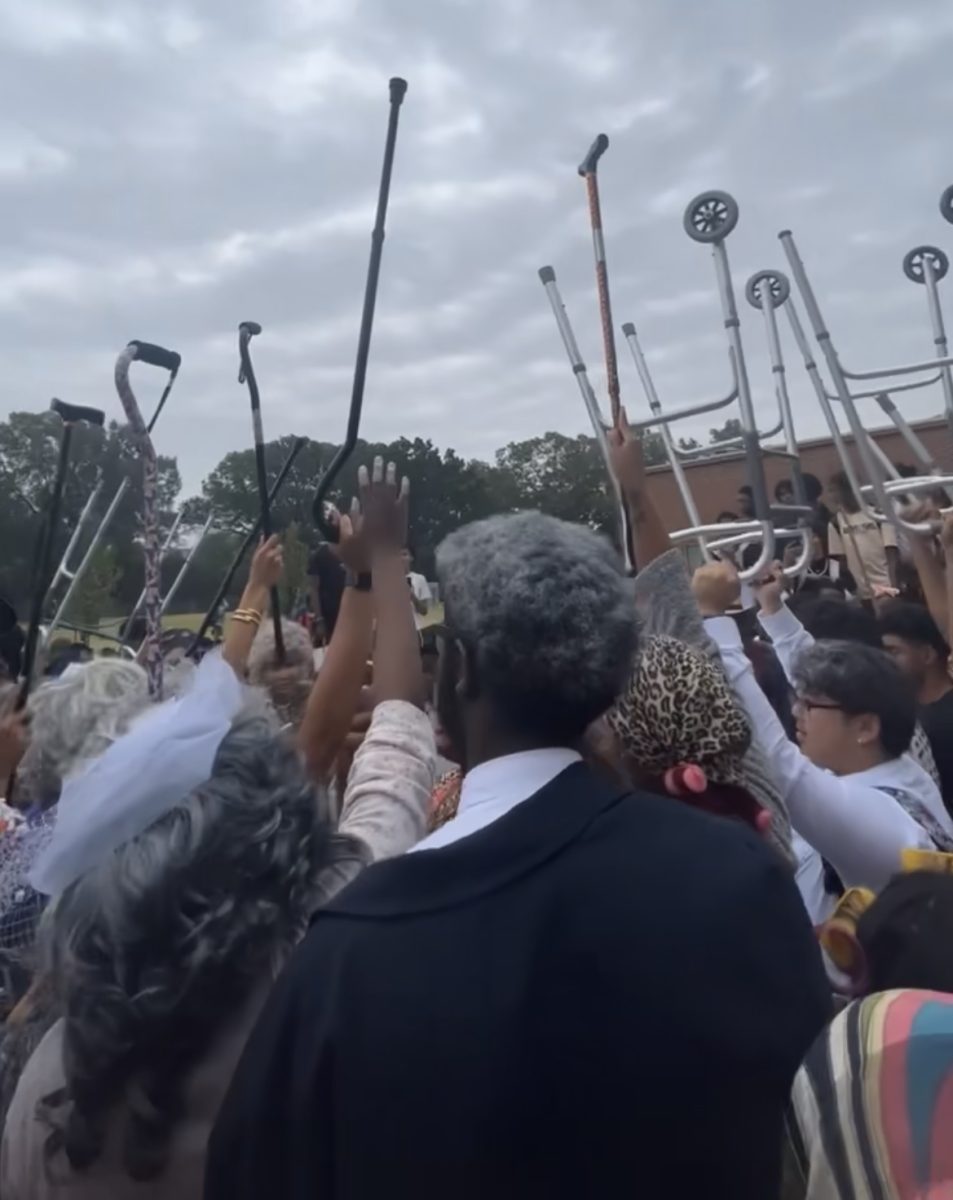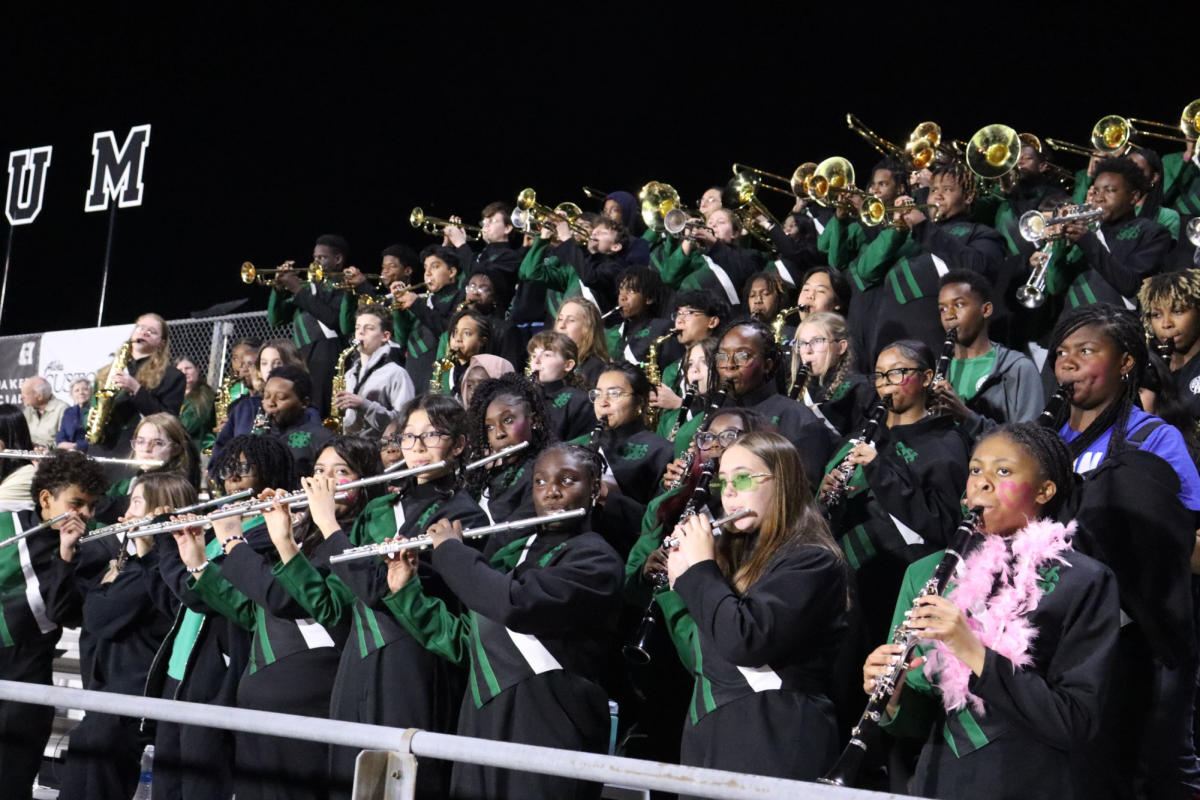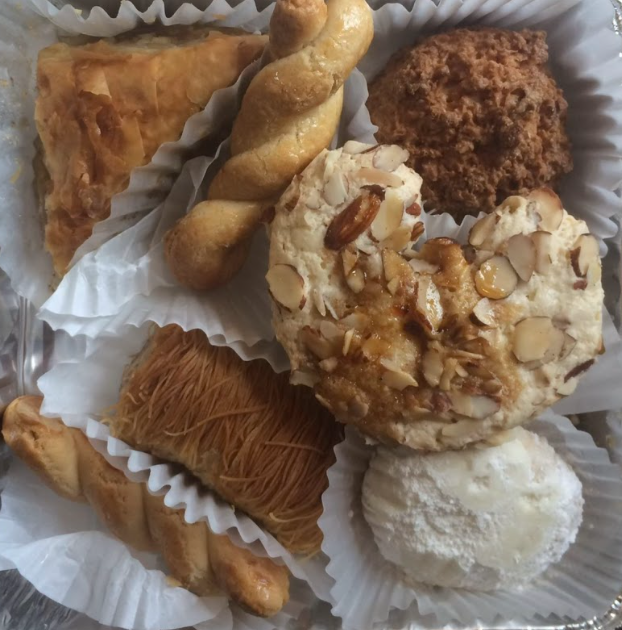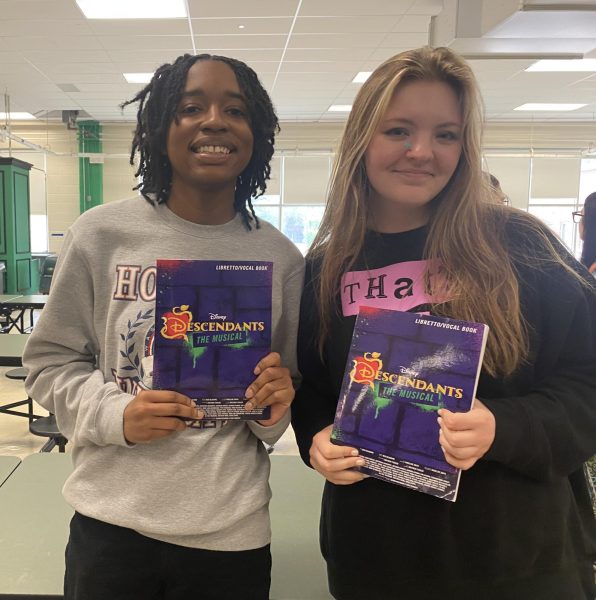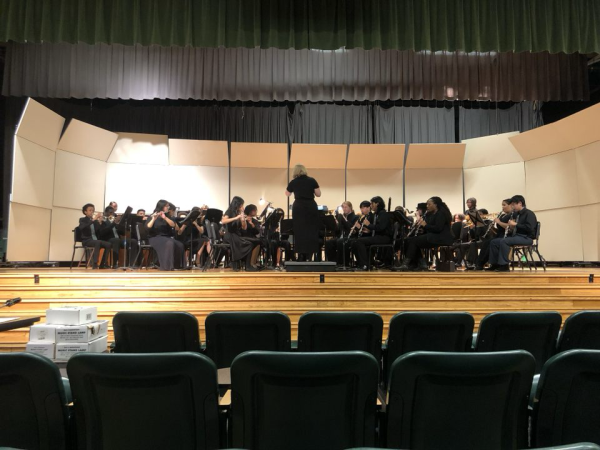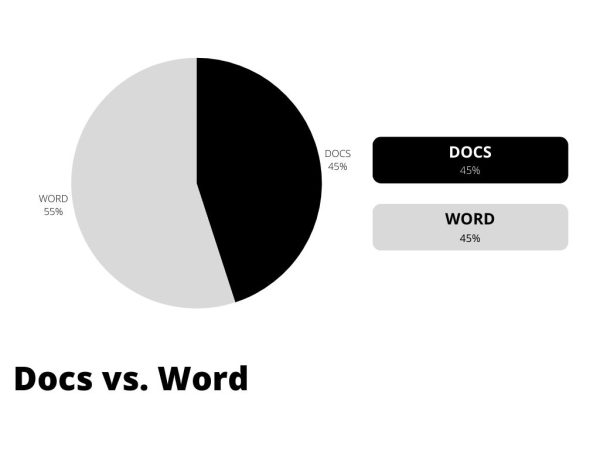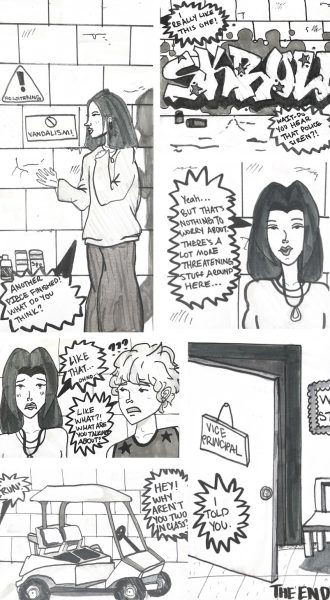Mediterranean meets Memphis
(From top left going clockwise) Baklava, koulouria, endokaridia, ergolavi, kourambiethes and kataifi are some of the pastries available at the Memphis Greek Festival. Volunteers work to prepare and pack the pastries for the community to purchase.
A sponge diver is plagued with decompression sickness, but when he begins to dance, his sickness is momentarily cured. This is the story behind the Greek folk dance, the mixanikos, that is regularly performed at the Memphis Greek Festival.
Greek Fest has been a recurring event for over 60 years, and it is made possible by the members of the Annunciation Greek Orthodox church. The parishioners are not all Greek as Eastern Orthodoxy is common in other countries such as Romania and Ethiopia. But, the festival, which is being held on May 20-21, is a celebration of Greek culture through dance, food and music.
“It’s a great opportunity to learn more about a culture that’s not really taught much in schools,” Jonathan Mehrotra (10) said. “Greek culture isn’t really that mainstream, so most people are unaware of their traditions and stuff. But also, it’s just like a pretty fun time [because] they have inflatables and the dances — there’s food, there’s church tours, there’s just a ton of stuff that someone can do.”
Mehrotra, who attends Annunciation, plans to participate in the Athenian Dance Troupe this year. The group performs dances from mainland Greece, the Greek Islands and even the Pontic region in Asia Minor. The dances are a way for the Memphis community to learn more about Greek culture and history as the dances often have stories behind them.
“Their style of dance is something that I thought was very unique and very cool that I didn’t know about,” Nora Compton (11) said. “The style I had seen was very group-oriented and everyone was working in a line … I would say it was very uniform, which a lot of styles of dance I have seen people would be similar, but there’s some like element of difference in the people and seeing everybody be like identical in their style of dress and their style of movement was like — ‘that’s different, and that’s new and that’s very cool.’”
Dance is a large part of Greek culture and can be found in events ranging from weddings to baptisms. After each performance, the audience members are allowed to come up to the front and learn dances alongside performers and volunteers.
“When people want to participate in your culture and they get excited and they’re like, ‘Oh, show me how to do this one,’ … you’re … happy to show them, because you’re excited that they care enough to want to learn,” Instructional Resource teacher Alexandra Pappas said.
Pappas, who is also a member of Annunciation, has volunteered at the festival since her early teens, when she was also a Greek dancer. She often works in the indoor food line, as the festival has indoor and outdoor food options, where she is able to serve Greek cuisine to the Memphis community.
“One thing I’d notice when I would talk to the people in the food line [is] a lot of people haven’t had Greek food before,” Pappas said. “They don’t even know what it is like and … the culture has been around for a long, long time. But we don’t have like a lot of Greek restaurants in town anymore and … your average American … is not going to know what it’s like so [the festival is] a nice way to try it.”
The various foods at the festival are a main attraction for many. Ranging from full meals, to street foods and desserts, there are many options to try.
“In the inside part, they have dinner-type situations where you can get like chicken or shish kebab or lamb and then a side of rice and then a side of green beans Greek-style and then spanakopita, which is a Greek spinach pie,” Pappas said. “And then in the outside, you can get things that you more could carry around so, like … Greek-style pizza, which is with feta cheese and no tomato sauce … and then things like … the gyro sandwich.”
For Compton, who has attended the festival multiple times, the Greek sweets are her favorite part. She enjoys baklava (layered pastry with honey and nuts), loukoumades (sweet honey puffs) and kourambiethes (powdered sugar cookies). Her mom discovered that the ergolavi (almond cookies) fit her dietary needs.
“The food is always quite delicious,” Compton said. “They have gluten-free options, which because my mom can’t have gluten, is exciting cause she usually doesn’t get to have things when we go to festivals.”
Mehrotra worked the food lines of a scaled-down festival that was held in October. As a volunteer, he is able to see some of the behind the scenes work that goes into making the festival including the cooking of one of his favorites dishes to get the souvlaki (shish kebab).
“I just think it’s seasoned and marinated pretty well,” Mehrotra said. “I’ve been in the kitchen where they make it and like I saw how it’s prepared and I was pretty impressed at … not only the scale of the operation, but also like all the steps that go into preparing it and serving that for [many] people — it’s pretty crazy.”
By volunteering and dancing, Mehrotra gets to spend time with his church friends, which is something he is looking forward to this year. One of his favorite memories from past years was when he last performed with the dance troupe.
“When I was in kindergarten, I performed a Greek dance and there was one where I had to like pick up a cup off someone’s head and like smash it on the ground,” Mehrotra said. “I forgot what that dance was, but it was pretty fun especially as like a six-year-old — that’s a pretty nice experience.”
The festival, which is the church’s outreach to the community, is a chance to experience Greek culture — whether that be through just listening to the live band or trying a new cuisine.
“If you’re going to come to our festival, we’re going to welcome you with open arms, and we’re going to show you everything we can show you, and we’re going to help you any way we can, and we’re going to be sad if you’re not happy when you leave,” Pappas said. “When you come to the Greek Fest, it’s like you’re coming to our house, and we want to treat you like you’re coming to our house, and we don’t want you to leave disappointed.”
Your donation will support the student journalists of White Station High School. Your contribution will allow us to purchase equipment and cover our annual website hosting costs.



